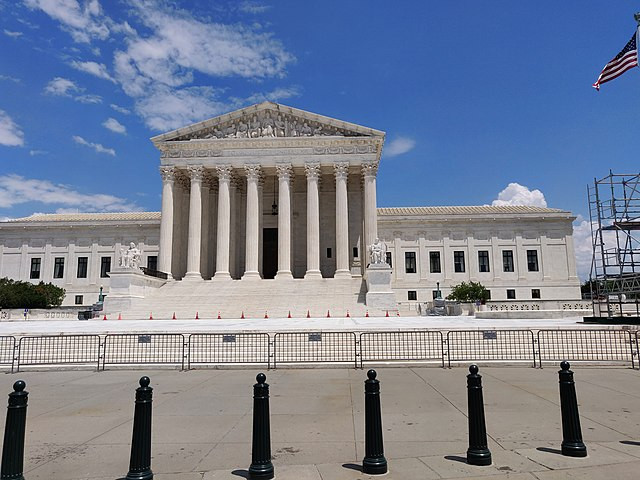The Supreme Court on Thursday upheld a Trump-era tax on overseas investments, securing a win for the Biden administration and preserving existing tax provisions that generate substantial revenue for the U.S. government. The court's 7-2 ruling rebuffed a challenge from a Washington state couple, whose case had the potential to disrupt the tax code and affect proposals for a wealth tax.
Justice Brett Kavanaugh, writing for the majority, emphasized the narrow scope of the decision, clarifying that it does not touch upon the broader debate over a wealth tax. "Those are potential issues for another day, and we do not address or resolve any of those issues here," Kavanaugh wrote, underscoring that the ruling solely pertained to the tax in question.
The case centered on whether the government could levy a tax on investment proceeds that had not yet been received by the investors. Charles and Kathleen Moore challenged a $15,000 tax bill arising from their investment in an India-based company, KisanKraft, arguing that the profits were reinvested and never distributed to them. This tax was part of a one-time mandatory repatriation tax enacted in 2017 under former President Donald Trump's administration, targeting undistributed profits accumulated by certain foreign corporations from 1986 to 2017.
Justice Clarence Thomas, in his dissent, expressed concerns about the broader implications of the ruling, but the majority opinion focused on maintaining the stability of the existing tax system. "The upshot is that the Moores' argument, taken to its logical conclusion, could render vast swaths of the Internal Revenue Code unconstitutional," Kavanaugh wrote. "And those tax provisions, if suddenly eliminated, would deprive the U.S. Government and the American people of trillions in lost tax revenue."
The decision has broader political implications, particularly in the context of Democratic proposals to tax the wealthy more aggressively. President Joe Biden and other Democrats have floated ideas such as taxing unrealized capital gains and imposing a minimum income tax on billionaires. While these proposals have yet to gain significant traction in Congress, the court's ruling removes a potential legal hurdle that could have complicated their implementation.
The ruling also preserves several international tax rules designed to prevent U.S. residents and corporations from shifting assets and operations overseas to avoid federal taxes. Former House Speaker Paul Ryan, who helped draft the 2017 tax law, had warned that a victory for the Moores could undermine a substantial portion of the tax code.
Beyond the legal and political ramifications, the case of Moore v. U.S. attracted attention due to ethical concerns. Justice Samuel Alito faced calls from Senate Democrats to recuse himself because one of the lawyers representing the Moores had co-authored favorable opinion pieces about him. Alito, however, did not step aside from the case.
Public records also revealed that Charles Moore's involvement with KisanKraft was more extensive than initially disclosed in court filings. Moore had served as a director of the company for five years, which raised questions about the full extent of his relationship with the business.
Despite these controversies, the Supreme Court's decision ultimately upheld the tax provision, aligning with the Biden administration's stance and ensuring the continuity of revenue from overseas investments. The ruling protects a measure expected to generate $340 billion over a decade, primarily from foreign subsidiaries of domestic corporations.
Justice Kavanaugh's opinion carefully navigated the potential for broader implications, assuring that the decision would not preemptively authorize a wealth tax or other similar measures. This approach aimed to provide clarity while preserving the current tax framework that supports significant federal revenue.
As the Biden administration continues to push for tax reforms targeting the wealthiest Americans, this ruling reinforces the legal foundation for existing tax policies and mitigates uncertainties about their future implementation. The decision also underscores the judiciary's role in maintaining the balance between legislative tax initiatives and constitutional constraints.






